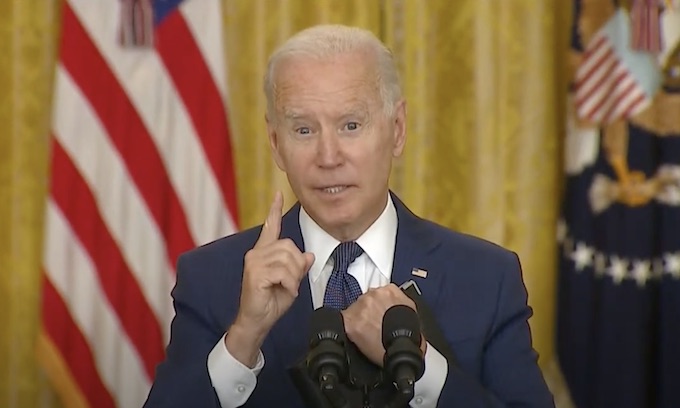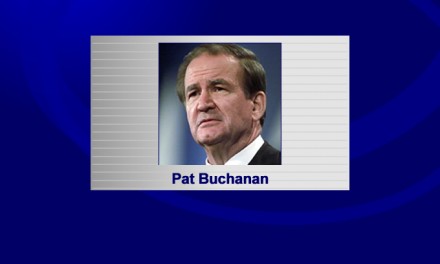Think it’s impossible to screw up two countries at once? You’ve never seen President Joe Biden in action.
On March 27, Israeli prime minister Benjamin Netanyahu announced that his government would pause the progress through the Knesset of a controversial judicial bill until later this spring. Netanyahu’s decision came after weeks of mounting street protests over the reform, which would allow the legislature to rein in the judiciary. Military reservists stopped reporting for duty. Israel’s largest union declared a general strike. U.S. officials were critical.
So, when Netanyahu suspended the measure, U.S. ambassador to Israel Tom Nides welcomed the move. Asked when Netanyahu might visit President Biden in the White House, Nides said: “I’m sure he’ll be coming relatively soon.”
Nides didn’t check with his boss. He extended an open hand to Israel’s elected leader. Biden slapped it down. On March 28, during a visit to North Carolina, the president spoke to reporters. Calling himself a “strong supporter of Israel,” Biden said he was nonetheless concerned that Israelis “get this straight. They can’t continue down this road”—the road, presumably, of a democratic majority following due process of law. A reporter asked Biden if he’d be welcoming Netanyahu in Washington. “Not in the near term,” Biden replied.
Some friend. No matter your opinion of the judicial reform—and there are plenty of committed Zionists who are leery of it—there is no question that Biden’s rebuke of Netanyahu was a breach in U.S.-Israel relations. Americans and Israelis scrambled to repair the damage. Netanyahu posted a Twitter thread underscoring his commitment to the alliance, while reminding Biden that Israel is a sovereign nation that will determine its own course. Or, as National Security Minister Itamar Ben-Gvir put it: “Israel is an independent country, not another star in the American flag.” On March 29, White House national security spokesman John Kirby played down the differences as best he could.
This is why the White House keeps Biden away from the press. When he lacks a script, he goes haywire. Biden spoke his mind—what’s left of it—and caused an international incident. The double standard he applies to Israel is glaring. It is also offensive. Israel accommodated protesters. Iran murders them. Where is Biden’s outrage at the butchers in Tehran?
Every democracy has its internal debates. In recent weeks Paris has been the site of violent demonstrations over French president Emmanuel Macron’s unilateral hike in the retirement age. Farmers in the Netherlands have taken direct action against environmental regulation. In Mexico, where President Andrés Manuel López Obrador has gutted the electoral commission, democratic backsliding is not theoretical. It is happening in real time. Then there are the nondemocracies worthy of condemnation: Cuba, Venezuela, Nicaragua, to name a few in our hemisphere. Maybe Biden could find time to meddle with them.
Yet Israel is singled out. Israel is where pressure is brought to bear. Why? Three reasons:
PERSONAL. Media coverage has focused on the long history between Biden and Netanyahu. “There is no love lost between the two leaders, despite their polite façade when it comes to their decades-long relationship and their common commitment to Israel’s defense,” wrote Katie Rogers and Michael Crowley of the New York Times. The White House, meanwhile, suggested that Biden’s familiarity with Netanyahu gives him the freedom to be intrusive. “These two gentlemen have known each other for 40-some-odd years,” John Kirby said this week. “And the great thing about a deep friendship is you can be that candid with one another.”
Biden assumes that his past with Netanyahu will help him now. He’s wrong. For one, the idea that he and Bibi are pals who enjoy Grotto slices on the Rehoboth boardwalk or smoke hookah along Aviv Beach is ridiculous. For another, personal diplomacy does not work. No world leader ever made a concession because the other guy was nice. Successful politicians believe that charm counts most. It doesn’t. Charm fades when it reaches the world stage.
POLITICAL. Compare Biden’s stalwart posture toward Netanyahu with his kindness toward the previous Israeli government, led by Naftali Bennett and then Yaïr Lapid. The last coalition was an oddity—it included parties of the right, center, left, and Arab sector—formed around opposition to Netanyahu. Biden left it alone. He was cheery when he visited Israel last summer. He worked with Lapid to negotiate an energy deal with Lebanon meant to boost the coalition ahead of elections. It didn’t work. Netanyahu joined forces with a united bloc of the Israeli far right and won a substantial victory.
Biden is constrained. Pro-Israel Democrats have grown tired of Netanyahu, whose ruling coalition is too nationalist and too religious for them to stomach. Biden’s favorite newspaper columnist has embarked on a barely literate anti-Bibi jihad. According to public survey data, Democrats as a whole sympathize more with Palestinians than they do Israelis. And the Progressive Left is outright hostile to Israel and to the very idea of a Jewish State. What better way for Biden to shore up his base than to confront Netanyahu—even if he destabilizes Israel as a result?
GLOBAL. Biden’s comments make a successful negotiation between Netanyahu and the opposition less likely. After all, opposition leader Lapid knows Biden is on his side. He will therefore make maximalist demands. The goal isn’t to scuttle the judicial reform. The goal is to collapse Netanyahu’s coalition and drive him from office.
Biden has wasted his hand. The year began with Israel’s first stable government in years, Iran in a prerevolutionary situation, and a stable Iraq. The Iran nuclear deal was a dead letter, the Saudis were interested in diplomacy with Israel, and the Abraham Accords were a model for economic and security cooperation in the region.
Look at what’s happened since. Israel has been consumed by infighting. China brokered a détente between Saudi Arabia and Iran. Iranian-backed militias have attacked U.S. personnel in Syria, killing one American and injuring others. Iran suppressed the protest movement. It could produce enough fissile material for a nuclear bomb “in about 12 days.”
Our response? Secretary of State Antony Blinken welcomed the Iran-Saudi deal. Biden retaliated against the Iranian-backed militia—but because the strike was limited in size and scope, it will fail to restore deterrence. The administration continues to say that it’s ready to sign a nuclear deal with Iran. And it spends more time using a magnifying glass to read the fine print of Knesset bills than it does applying hard power to the brutal realities of the Greater Middle East.
America needs to bolster her traditional allies in the region—not bully or shun them—to prepare for a confrontation with Iran. A true friend would know that. He’d know the difference between partners and adversaries. And he’d know when to hold his tongue.
© Copyright © 2023 The Washington Free Beacon, All rights reserved.
—-
This content is published through a licensing agreement with Acquire Media using its NewsEdge technology.



















When individual men get elected as President of the United States, they are supposed to remove their black and white political penguin garments of self-interest or party-interest and put on Joseph’s “ketonet passim” Coat of many colors that represents the interests of ALL the American people and supporting American allies, regardless of race, color, religion or national origin. We need this mindless President to give us more Joseph and less Joe, and perhaps maybe the divided 50 America State Tribes of America can make it back to the lost promised land of Milk and honey, instead of Joe’s land of meanness, malarkey, confusion, lost energy and lost opportunity. I guarantee you if Israel had tons of oil, for more Hunter job opportunities to run tons of cash through the Biden bidding money laundromats, Joe would be singing a whole different tune speaking with a Yiddish accent like Hillary tried to in Ebonics. But Joe always follows the money,,,follow the money and you will find what trips the trigger that shoots off his mindless mouth.
“Think it’s impossible to screw up two countries at once? You’ve never seen President Joe Biden in action.”
“Biden said he was nonetheless concerned that Israelis “get this straight. They can’t continue down this road”—the road, presumably, of a democratic majority following due process of law. A reporter asked Biden if he’d be welcoming Netanyahu in Washington. “Not in the near term,” Biden replied.”
“America needs to bolster her traditional allies in the region—not bully or shun them—to prepare for a confrontation with Iran. A true friend would know that. He’d know the difference between partners and adversaries. And he’d know when to hold his tongue.”
What we have as president is a demended, corrupt, puppet, fool. Being manipulated by a U.S. hating Muslim Barack Obama and others who either Hate the U.S. or want to turn it into a Socialist Democrat Party Dictatorship.
Unfortunately we have many Democrat Party “useful Idiots” who bow down to and worship this Traitorous, Destructive, Dishonest, Unethical, Immoral, Woke, Socialist Democrat Party. They are of the mindset of minion fools and attempt to destroy anyone or anything that does not obey, be loyal to and support the policies of the “Socialist Democrat Party State” you will be classified as “Enemies of the State” and “Domestic Terrorists”.
He could mess up EVERY country out there.. If given the chance to.